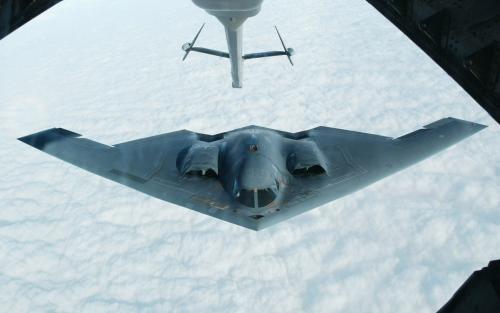The Center for Middle East Policy (CMEP) at Brookings hosted a dialogue on February 18 to discuss sharp escalations of the conflicts in Yemen and Libya, including the Shiite rebel coup in Yemen and ISIS’s brutal execution of Christians in Libya.
Daniel Byman, senior fellow and CMEP research director, moderated a discussion featuring Sama’a Al-Hamdani, founder of the Yemeniaty blog, Barbara Bodine, former U.S. ambassador to Yemen and professor at Georgetown University’s School of Foreign Service, and Frederic Wehrey, Senior Associate at the Carnegie Endowment for International Peace. Ibrahim Sharqieh, deputy director of the Brookings Doha Center, also joined the discussion via satellite from Doha.
Yemen: Democratic promise derailed
Al-Hamdani lamented the unraveling of Yemen’s nascent democratic process in the four years since the 2011 overthrow of Ali Abdullah Saleh. The transitional government led by Abed Rabbo Mansour Hadi, Al-Hamdani argued, was unequipped to address the country’s considerable economic and development challenges and mediate the interests of Yemen’s fractious tribal factions. The Iranian-backed Shiite Houthi militias exploited the resulting power vacuum, playing on popular grievances over ineffective economic reforms to seize the government in Sana’a in early February. Post-coup instability has since prompted Washington to close its embassy in the capital.
Bodine refuted prevalent notions painting the conflict as sectarian, underscoring the fluid complexity of Yemen’s “kaleidoscopic” political landscape. Bodine and Al-Hamdani agreed that the conflict is not split neatly between the Shiite Houthis and the Sunni extremists, but encompasses multiple actors. These actors, Al-Hamdani pointed out, will continue to compete for power in Yemen whether the United States or its allies choose to engage with them or not.
Libya: The aftermath of autocracy
Wehrey, who recently returned from a research trip to Libya, emphasized the dire proportions of the conflict there. Violence has displaced thousands, curtailed oil production, and created a safe haven for ISIS and other extremist groups. Wehrey attributed the current strife to the lingering impact of four decades of autocratic rule under Moammar Gadhafi, whose 2011 ouster left Libya with anemic government institutions, a divided society, and ineffective military and police forces.
The subsequent power vacuum enabled the rise of militias, broadly split between two rival governments—the Islamist Dawn coalition, based in Tripoli in the west, and the internationally endorsed Dignity coalition, led by General Khalifa Haftar in Tobruk in the east. Both camps, Wehrey pointed out, are fragmenting under the pressure of the ethnic, tribal, and political rivalries. He added that airstrikes currently undertaken by Egypt are ineffective at resolving these broader political problems. Sharqieh warned that the conflict is becoming self-sustaining amidst this chaos, explaining that emergent warlords and militias have benefited from the crisis.
Nearsighted Policies: The international response
Panelists agreed that narrow-minded policies adopted by the international community contributed to the deterioration of Yemen and Libya by emphasizing quick fixes over long-term strategy. Al-Hamdani cited Yemen as a “cautionary tale” for policy toward Libya, arguing that Washington overemphasized is own security interests—eliminating al-Qaida-linked extremists in the south—at the expense of promoting good governance and Yemen’s political needs. Meanwhile, she said, the United Nations-led national dialogue was entrusted with facilitating the political transition and is failing.
Bodine agreed that Washington has viewed Yemen only through the prism of counterterrorism, pursuing a “narcissistic” policy that privileges drone strikes over the economic, employment, and governance deficits that initially provoked political unrest. Bodine explained that destroying a village through drone strikes disperses but does not stop extremists, adding that the U.S. failure to rebuild damaged civilian infrastructure has exacerbated popular grievances and sympathy for extremist narratives.
It’s not too late: Possible solutions
The speakers asserted that Yemen and Libya can avert full-fledged civil war by committing to inclusive political dialogue with the help of the international community. Sharqieh advised against military action, and stressed that any solutions should originate from within the countries themselves. While international support is essential, he urged that Yemen and Libya must take ownership of their own peace processes.
Al-Hamdani and Bodine warned that isolating the Houthis in order to assuage the concerns of neighboring Saudi Arabia would only further push the group into Iranian arms. Instead, they both recommended that the international community should press Yemen’s political factions to engage with one another and hold democratic presidential elections. Wehrey also advocated against coercive methods in Libya, such as the recent Egyptian airstrikes. He recommended urging pragmatic elements from the two factions to come together and form a unity government.
All the panelists agreed undertaking these measures may prevent Yemen and Libya from following the tragic fate of Syria.
The Brookings Institution is committed to quality, independence, and impact.
We are supported by a diverse array of funders. In line with our values and policies, each Brookings publication represents the sole views of its author(s).




Commentary
It’s not too late: Addressing “the other civil wars” in Libya and Yemen
February 23, 2015